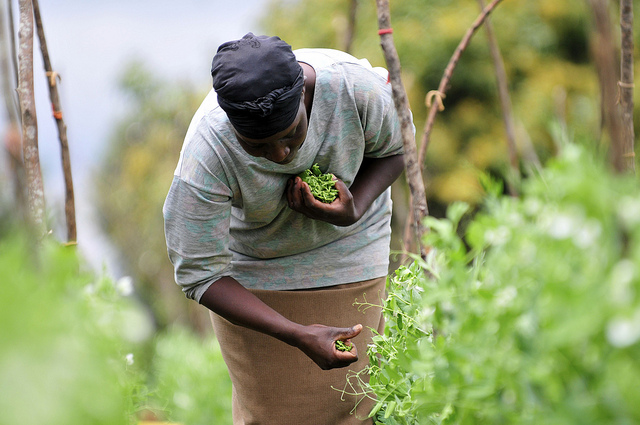The following story was originally published on the CGIAR Research Program on Climate Change, Agriculture and Food Security (CCAFS) website.
A comprehensive book series by the International Food Policy Research Institute (IFPRI) has investigated the impact of climate change on African agriculture and food security. The final chapter on East Africa will be exclusively released at an upcoming session at the Global Landscapes Forum.
What’s next for climate change in Africa? This is precisely the question that will be debated at the Technical and Networking Session The good, the bad and the ugly: Climate change’s potential impact on farmers in Africa on Saturday 16 November at the Global Landscapes Forum in Warsaw, Poland. The session will bring together the authors of the Climate Change Monograph Series, recently published by the International Food Policy Research Institute (IFPRI), which includes CCAFS own Regional Program Leader for West Africa, Dr. Robert Zougmoré.
Each of the publications will be featured during the discussion, and the final monograph focusing on Eastern Africa will be available in hard copy for the first time to participants of the GLF – exclusively. The research for the books was generously supported by the CGIAR Research Program on Climate Change, Agriculture and Food Security (CCAFS).
Learn more about the future projections for Kenya, from the upcoming Eastern Africa publication: Based on what we know, can Kenya plan its climate future?
In the Monographs series there are two types of analyses. In the first type, crop caption here models are used together with climate models to determine yield impacts at a pixel level (in most cases, 10 km by 10 km). In the second type of analysis, a global model of supply and demand for food and agriculture is analyzed, with countries as the level of analysis. Both are done all through 2050.
During the technical session, the speakers will explore another interesting finding: some parts of a country may be adversely impacted by climate change while others might be clear gainers by climate change. Will there be enough impact to induce migration from one area to another? And what if the area that will become fruitful for agriculture happens to be environmentally sensitive or critical for tourism or other purposes that agriculture might destroy?
This will be a rare opportunity to see climate change discussed by all three of the regions’ authors in a frank dialogue on what climate change actually means for the region.
This particular study is unique in its dissection of each country and its analysis. Tim Thomas, one of the editors of each of the monographs and a research fellow at IFPRI, explains:
“This idea has been applied globally and on a regional level in earlier studies. But then somebody wondered if we could do the same kind of analysis but bore down to the country level so that policymakers in Africa could have some real analysis to help them shape policy for adapting agriculture to climate change. What we present in the Global Landscapes Forum takes the idea one step further: can we bore down into our analysis even further, and help better understand what climate change will do to agriculture at the landscape level?”
Key findings and recommendations of the monograph series include:
* Geographically nuanced yield impacts of climate change While on the whole climate change will negatively impact farmers, there will be areas that climate change will actually improve yields, usually through increased rainfall, but sometimes through warmer temperatures in areas that are too cold for agriculture (higher elevations).
* Technological improvement will compensate a lot for the negative impacts of climate change But for gains to be realized, countries will need to more fully fund agricultural research and extension so that varieties and farming techniques suitable to the changed climate might be developed and disseminated to farmers in a way that can be understood by them.
* There is often disagreement between climate models as to the direction of change in rainfall (some say it will increase in the same place as others say it will decrease) and in the magnitude of the temperature increase. This seems to suggest making policies and technologies that are flexible or reversible, if the wrong guess about climate has been made. For example, multiple maize varieties could be developed, some designed for less rain, some for more.
Related Materials
* Southern African Agriculture and Climate Change
* West African Agriculture and Climate Change







